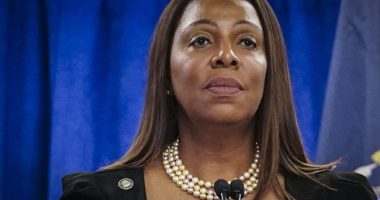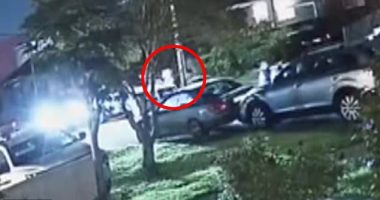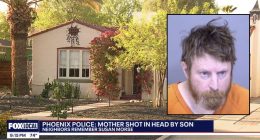Joe Tacopina, a lawyer for Trump, told The Associated Press he had been told that a grand jury that had been meeting for months voted to indict Trump.
The specific charges were not immediately made public.

Manhattan District Attorney Alvin Bragg’s office will reach out to Trump’s attorneys to discuss his surrender to face an arraignment.
The decision is sure to send shockwaves across the country, pushing the American political system — which has never seen one of its ex-leaders confronted with criminal charges, let alone while running again for president — into uncharted waters.
The legal action against Trump jolts the 2024 presidential campaign into a new phase — where the former president has vowed to keep running in the face of criminal charges.
Trump has frequently called the various investigations surrounding him a “witch hunt,” attempting to sway public opinion on them by casting himself as a victim of what he’s claimed are political probes led by Democratic prosecutors.
As the indictment reportedly neared, Trump urged his supporters to protest his arrest, echoing his calls to action following the 2020 election as he tried to overturn his loss to President Joe Biden.

Trump has long avoided legal consequences in his personal, professional and political lives.
He has settled a number of private civil lawsuits through the years and paid his way out of disputes concerning the Trump Organisation, his namesake company.
As president, he was twice impeached by the Democratic-led House, but avoided conviction by the Senate.
Read Related Also: Manhattan grand jury votes to indict Donald Trump over hush money paid to pornstar Stormy Daniels
In December, the Trump Organisation was convicted on multiple charges of tax fraud, though Trump himself was not charged in that case.
Trump’s Republican allies – as well as his 2024 GOP rivals – have condemned the Manhattan district attorney’s office over the looming indictment, and House Speaker Kevin McCarthy has vowed to launch an investigation into the matter.
Bragg’s office had signaled as recently as early March that they were close to bringing charges against Trump after they invited the ex-president to testify before the grand jury probing the hush money scheme.
Potential defendants in New York are required by law to be notified and invited to appear before a grand jury weighing charges. But Trump ultimately declined to appear before the panel.

The long-running investigation first began under Bragg’s predecessor, Cy Vance, when Trump was in office.
It relates to a US$130,000 ($193,000) payment made by Trump’s then-personal attorney Michael Cohen to Daniels in late October 2016, days before the 2016 presidential election, to silence her from going public about an alleged affair with Trump a decade earlier. Trump has denied the affair.
At issue in the investigation is the payment made to Daniels and the Trump Organisation’s reimbursement to Cohen.
According to court filings in Cohen’s own federal prosecution, Trump Organisation executives authorised payments to him totaling US$420,000 ($625,000) to cover his original US$130,000 payment and tax liabilities and reward him with a bonus.
The Trump Organisation noted the reimbursements as a legal expense in its internal books. Trump has denied knowledge of the payment.





